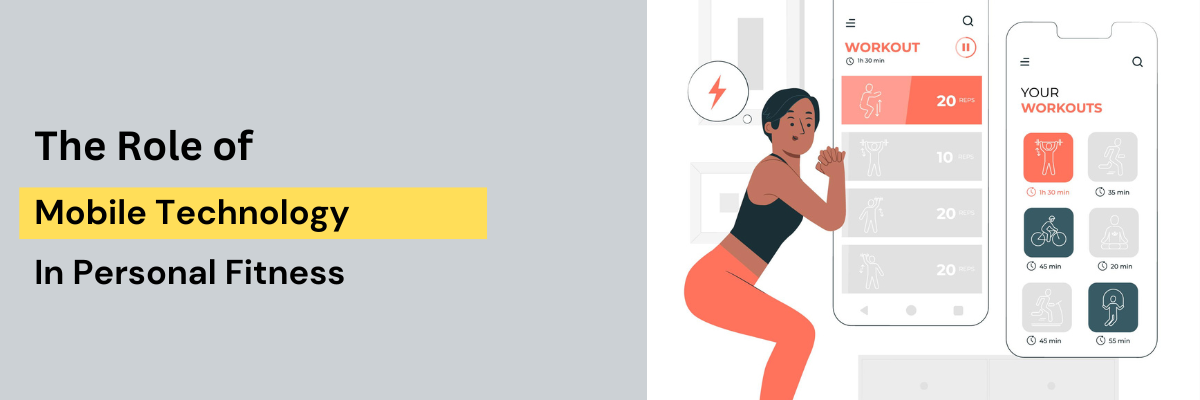
In today’s digital age, mobile technology has revolutionized countless aspects of our lives, and personal fitness is no exception. From fitness tracking apps to virtual workout programs, mobile technology has become a cornerstone in the pursuit of healthier lifestyles. This article explores the significant role of mobile technology in personal fitness and how it helps individuals achieve their health goals more effectively.
1. Fitness Tracking Apps: The Heartbeat of Mobile Fitness
Fitness tracking apps are among the most popular uses of mobile technology in personal fitness. These apps, such as MyFitnessPal, Fitbit, and Strava, enable users to monitor their physical activities, diet, and overall health. Key features of fitness tracking apps include:
- Activity Monitoring: Track steps, distance, calories burned, and active minutes.
- Workout Planning: Schedule and log workouts, set fitness goals, and track progress.
- Health Metrics: Monitor heart rate, sleep patterns, and nutritional intake.
Fitness tracking apps empower users to make data-driven decisions about their health and fitness routines, providing real-time insights and personalized recommendations.
2. Virtual Workouts: Fitness at Your Fingertips
The rise of virtual workouts has made it easier than ever to exercise from the comfort of your home. With mobile apps like Peloton, Nike Training Club, and Beachbody On Demand, users can access a variety of workout classes and programs. The benefits of virtual workouts include:
- Accessibility: Access a wide range of fitness classes anytime, anywhere.
- Variety: Choose from various workout styles, including yoga, strength training, and cardio.
- Customization: Tailor workouts to fit your fitness level, goals, and schedule.
Virtual workouts eliminate the need for a gym membership and provide flexibility for busy lifestyles, making fitness more accessible and enjoyable.
3. Wearable Technology: The Next Step in Fitness Tracking
Wearable technology, such as smartwatches and fitness trackers, enhances the capabilities of fitness apps by providing continuous monitoring of health metrics. Popular devices like the Apple Watch, Garmin, and Fitbit offer features such as:
- Heart Rate Monitoring: Track heart rate in real-time to optimize workouts and monitor overall health.
- GPS Tracking: Record distance, pace, and route for outdoor activities like running and cycling.
- Sleep Tracking: Analyze sleep patterns to improve sleep quality and recovery.
Wearable technology integrates seamlessly with fitness apps, offering comprehensive data that helps users stay motivated and achieve their fitness goals.
4. Personalization and AI: Tailoring Fitness to Your Needs
Mobile technology leverages artificial intelligence (AI) and machine learning to deliver personalized fitness experiences, much like how advancements in healthcare app development are shaping personalized health solutions. AI-powered apps and devices analyze user data to provide customized workout plans, nutrition advice, and progress tracking. Key advantages include:
- Personalized Workouts: AI creates tailored workout programs based on individual fitness levels, preferences, and goals.
- Adaptive Training: Adjusts workout intensity and recommendations based on performance and progress.
- Health Insights: Offers insights into health trends and potential areas for improvement.
Personalization ensures that fitness programs are relevant and effective, enhancing user engagement and success.
5. Social Integration: Building Fitness Communities
Mobile technology fosters social interaction through fitness apps and platforms, allowing users to connect with friends, share achievements, and participate in challenges. Social features include:
- Community Engagement: Join groups, follow fitness influencers, and participate in forums.
- Challenges and Competitions: Compete with friends or other users to achieve fitness milestones.
- Progress Sharing: Share workout results, photos, and achievements on social media.
Social integration motivates users by creating a sense of community and accountability, making fitness more enjoyable and rewarding.
Conclusion
Mobile technology has transformed personal fitness by offering innovative tools and solutions that enhance motivation, convenience, and personalization. From fitness tracking apps and virtual workouts to wearable technology and AI-driven personalization, mobile technology plays a crucial role in helping individuals achieve their health and fitness goals. Fitness app development has been a key driver in this transformation, providing advanced features and functionalities that cater to diverse fitness needs. As technology continues to evolve, the future of personal fitness will undoubtedly be shaped by these advancements, making it easier than ever to lead a healthier and more active lifestyle.
